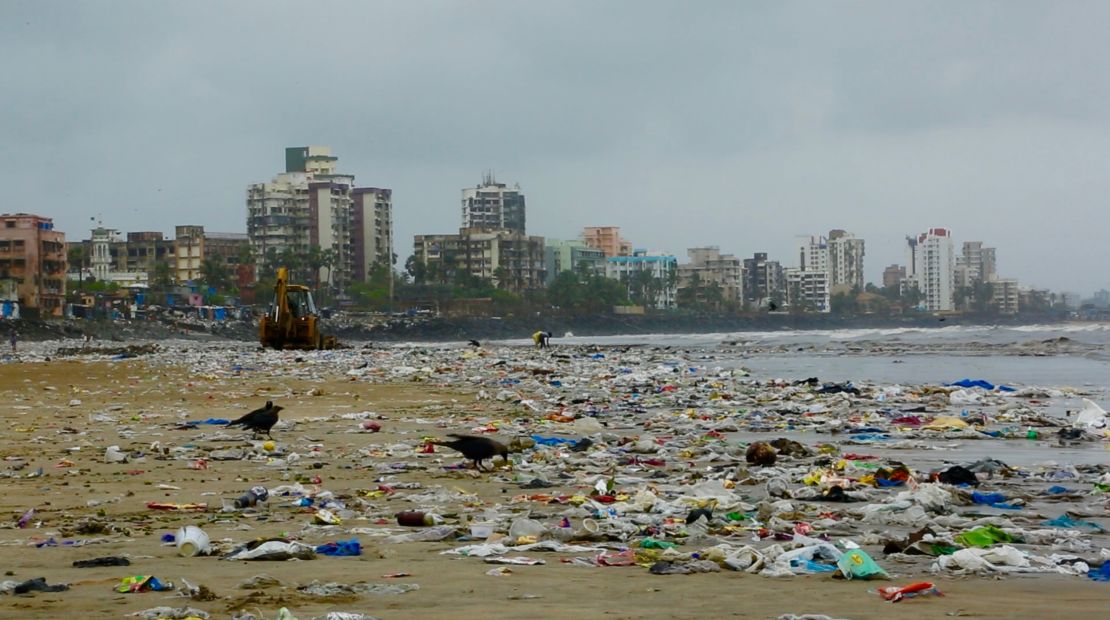Story highlights
A Mumbai lawyer and environmentalist is leading the clean-up effort
5.3 million kilograms of trash and plastic have been removed from the beach
It’s hard to believe, but this pristine shoreline was until recently considered to be one of Mumbai’s dirtiest beaches.
Labeled the “world’s largest beach clean-up project” by the United Nations, Versova’s dramatic transformation from filthy to fabulous has gone viral in India, where online commentators have praised the role of local volunteers in helping in the colossal effort.
Led by spirited young lawyer and environmentalist Afroz Shah, volunteers collected a staggering 5.3 million kilograms of decomposing trash and plastic from the 2.5 kilometer stretch of beach over a period of 21 months.
“I shifted to my new apartment two years back and saw plastic on the beach – it was 5.5 feet high. A man could drown in the plastic,” Shah told CNN. “I said I’m going to come on the field and do something. I have to protect my environment and it requires ground action.”

Shah, 33, began cleaning the beach in 2015 with the help of a neighbor. Over time, he was joined by more than 1,000 volunteers including local Versova residents, slum-dwellers, politicians, Bollywood celebrities and schoolchildren.
The volunteers have also cleaned 52 public toilets at the beach and planted 50 coconut trees. Shah says he wants to plant 5,000 coconut trees there and turn it into a “coconut lagoon like it used to be.”
“What I do is I pick up plastic. This is how I’ve been spending my weekends since 2015 and I love it,” Shah said.
Cleanup sessions are held regularly on weekends in events that Shah calls “dates with the ocean.”
On Saturday, Shah tweeted a photo of the now-immaculate waterfront, immediately gaining more than 6,000 retweets and 13,000 likes.
His efforts have been praised by Indian minister for Urban Development Venkaiah Naidu, and a number of Mumbai-based celebrities, among others.
The UN has also recognized Shah’s volunteer work. Last year, the United Nations Environment Program (UNEP) awarded him the Champion of the Earth award for his work in organizing community-led clean-up efforts.
“Because of the direction of the wind, a lot of garbage lands at Versova. The beach is surrounded by slums so lots of garbage comes from there. It was not a very popular beach in terms of visitors and tourists, so its cleanup has been ignored by the municipal corporation,” said Mumbai Marine conservationist Pradip Patade.
According to the UNEP, 13 million tons of plastic waste finds its way to the world’s oceans every year, which is equivalent to dumping two garbage trucks of plastic waste into the ocean every minute.
It poses a threat not just to marine wildlife and ecosystems but also to humans, as some marine litter makes its way into the diet in the form of fish or seabirds.
In a step toward tackling India’s massive waste problem, the country’s National Green Tribunal banned the use of disposable plastics in the capital New Delhi in January this year.
